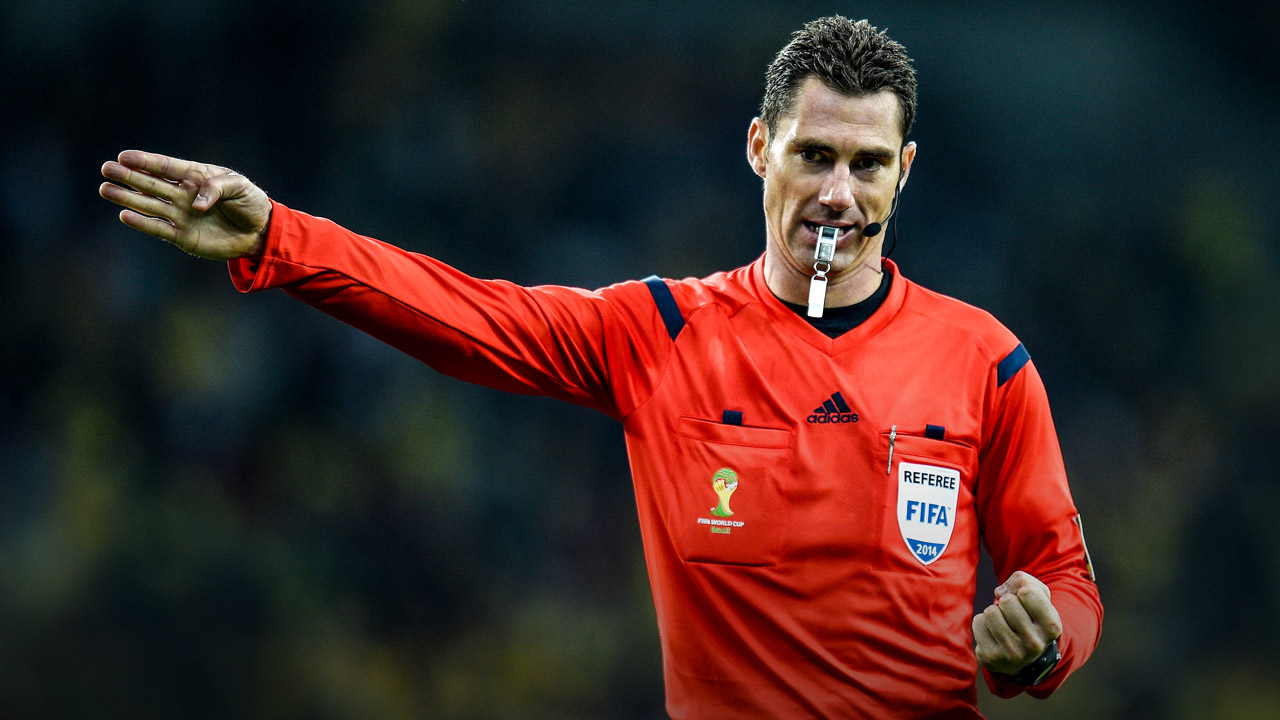When VAR (Video Assistant Referee) was introduced, it was heralded as a transformative technology that would eliminate errors, ensure fairness, and bring peace to football’s age-old debates. The dream of perfect refereeing captured the imagination of fans, players, and officials alike, who believed that technology would finally resolve the sport’s injustices. Skeptics, however, joked that VAR might leave fans and pundits with nothing to argue about—a lighthearted remark that, in hindsight, feels like the ultimate irony. The expectation that VAR would silence disputes was not only overly optimistic but profoundly misguided.
Early optimism surrounded VAR as it promised to eliminate glaring mistakes and level the playing field. Yet from the beginning, some voices of caution, like Ernesto Valverde, warned that controversy was inevitable. VAR might correct some errors, but it could never erase the inherently subjective nature of football. Indeed, debates didn’t disappear; they merely evolved. The focus shifted from whether referees made the right call at the moment to whether VAR intervened correctly, consistently, or at all. The technology became a lightning rod for frustration, creating new layers of controversy that overshadowed the very justice it was meant to deliver.

A recent week in Spanish football demonstrated the chaos that VAR can unleash. In a match between Cádiz and Elche, an offside error led to a crucial equalizer for Elche. The mistake was relatively minor—hardly noticeable during the game—but its implications were enormous. Cádiz, battling to avoid relegation, lost two critical points. The aftermath was dramatic: referees issued public apologies, an assistant referee reportedly broke down in tears, and referees responsible for the error were suspended from their next matches. Cádiz’s president demanded the match be replayed and threatened legal action, while fans and pundits decried the injustice. What should have been a minor oversight escalated into a full-blown crisis, exposing how VAR’s promise of fairness has made errors feel even more unforgivable.
The central paradox of VAR lies in its ability to magnify mistakes rather than minimize them. In the pre-VAR era, certain errors were accepted as part of the game, their imperfection woven into football’s narrative. Now, with every incident replayed in slow motion and scrutinized from multiple angles, even the smallest infractions become flashpoints for outrage. An offside call by mere millimeters or a faint touch leading to a penalty can be dissected for hours, turning minor moments into significant controversies. What might have been forgotten in the heat of play now takes center stage, casting a shadow over the game itself.
Football’s subjective nature clashes with VAR’s attempt to enforce objectivity. The sport has long thrived on its interpretive elements—referees’ judgments about fouls, intent, and fairness. VAR’s reliance on strict criteria and technological precision has altered this dynamic. Decisions are increasingly made according to the “letter of the law,” often at the expense of the “spirit of the game.” Referees now feel compelled to overanalyze situations, knowing their decisions will be dissected by cameras and commentators. This overemphasis on precision disrupts the game’s flow, replacing its natural rhythm with bureaucratic deliberation.
The psychological toll on referees has been profound. Once viewed as authoritative figures whose decisions, however imperfect, were final, referees now face unparalleled scrutiny. VAR has shifted the perception of their role from trusted arbiters to mere facilitators of technology. Mistakes that were once accepted as human errors are now seen as failures of the system. Apologies and suspensions for referees have become routine, eroding their authority and confidence. The emotional weight of their decisions has grown, as every call is subject to endless analysis and potential backlash.
VAR has also altered the behavior of players, coaches, and fans. Players have adapted their tactics to exploit the system, seeking contact and falling theatrically in hopes of drawing penalties under VAR’s gaze. Coaches, meanwhile, have learned to weaponize the technology, pressuring officials and calling for reviews at every opportunity. Fans, who once debated the merits of referees’ on-field decisions, now obsess over VAR’s role in every match. The joy of the game has been overshadowed by a fixation on justice, fairness, and perceived bias.

While VAR has improved decision accuracy—from 93% to 98%, according to Spanish refereeing authorities—the marginal gain comes at a significant cost. The remaining 2% of errors feel far more consequential than the 7% pre-VAR because they are seen as failures of a supposedly infallible system. The expectation of perfection has made the remaining mistakes harder to tolerate, amplifying the anger, frustration, and conspiracy theories surrounding them. Fans now view errors not as human failings but as systemic flaws, making acceptance far more elusive.
The introduction of VAR was based on the premise that football was deeply flawed and needed fixing. This narrative, however, was overstated. While mistakes occurred, they were rarely as catastrophic as portrayed. Football’s imperfections were part of its charm, and its subjective nature made it uniquely compelling. The pursuit of perfection through VAR has stripped away some of that character, replacing it with a sterile obsession with correctness. The game’s beauty lies in its unpredictability, a quality that technology struggles to preserve.
Instead of resolving disputes, VAR has become a new battleground for them. Its presence hasn’t silenced debates but has given them new fuel. The technology that was meant to bring clarity has instead created confusion, with every decision scrutinized and second-guessed. Fans and pundits interpret VAR’s calls through the lens of their allegiances, ensuring that bias and tribalism remain central to football discourse. What was supposed to be a tool for fairness has become a source of division.
Perhaps the most troubling aspect of VAR is the illusion it creates. The technology promises objectivity in a sport where subjectivity has always reigned. It aspires to eliminate controversy, yet its application often generates more. It aims to perfect decision-making, yet its reliance on human operators ensures that errors persist. VAR reflects football’s eternal paradox: its quest for fairness often undermines the very essence of the game. By turning minor details into major controversies, VAR has shifted the focus away from the sport itself and onto the technology meant to govern it.
As football moves forward, the challenge lies in striking a balance. VAR is unlikely to be abandoned, but its role in the game must be reevaluated. The goal should not be to eliminate all errors or enforce absolute precision but to support referees in maintaining the game’s flow and fairness. Football thrives on its imperfections, and VAR should enhance the sport, not dominate it. Embracing the human element while using technology judiciously could restore the joy and spontaneity that make football the world’s most beloved game.
In the end, VAR’s greatest lesson may be that perfection is neither attainable nor desirable. The promise of peace and fairness was always a myth, one that ignored the realities of football’s complexity and passion. The beauty of the game lies in its chaos, its unpredictability, and its capacity to spark debate. By striving for an impossible ideal, VAR has inadvertently highlighted what makes football special. The arguments, the imperfections, and the drama are not flaws to be eradicated but essential elements to be cherished.
